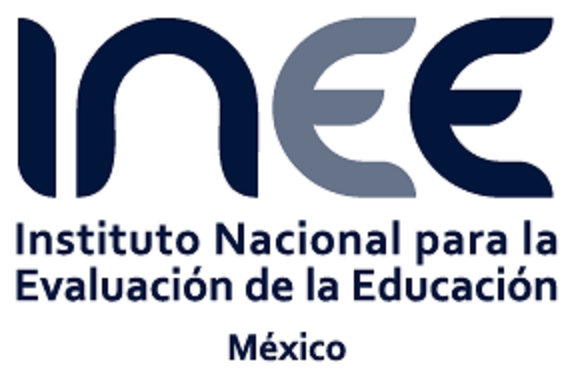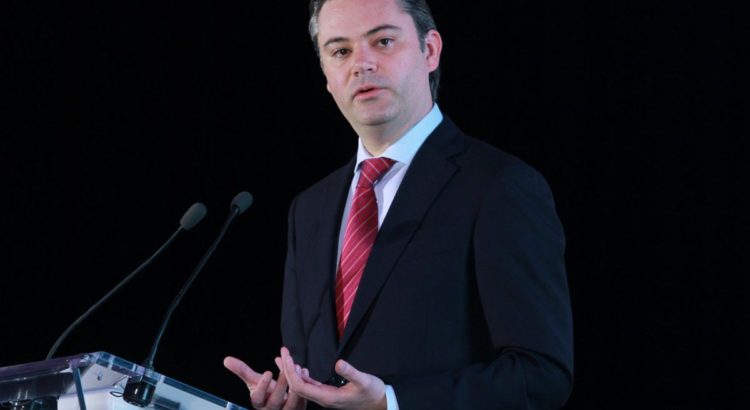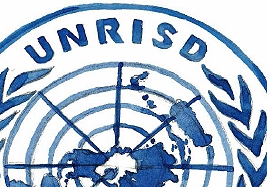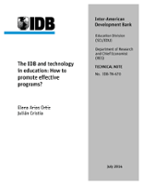Rocío Méndez Robles/20 Abr 2016/Noticias MVS
Aurelio Nuño Mayer hizo un llamado a toda la comunidad politécnica, en particular a los estudiantes, «a que no se dejen confundir o engañar, ya que ésta es una situación que ha ocurrido desde que fue creado por el general Lázaro Cárdenas hace 80 años, y que así se ha continuado y mantenido».
Al confirmar que continuará la información «con plena claridad» a estudiantes, investigadores y maestros de lo que verdaderamente implica la adscripción del Instituto Politécnico Nacional (IPN) a la Secretaría de Educación Pública (SEP), el titular de la SEP, Aurelio Nuño Mayer hizo un llamado a toda la comunidad politécnica, en particular a los estudiantes, «a que no se dejen confundir o engañar, ya que ésta es una situación que ha ocurrido desde que fue creado por el general Lázaro Cárdenas hace 80 años, y que así se ha continuado y mantenido».
«Estamos seguros de que estos esfuerzos, de que se pueda explicar con toda claridad esta situación que está llegando a los estudiantes y toda la comunidad, pueda quitar cualquier inquietud que exista y que el Politécnico pueda, en lo inmediato, en el caso de algunas escuelas vocacionales que están en algún tipo de paro por el momento, que dejen de tener esta inquietud y que regresen a las labores normales como quieren y como requiere la comunidad para poder seguir ofreciendo una educación de gran calidad», exhortó el maestro Nuño Mayer.
«El Instituto Politécnico Nacional se rige por su Ley Orgánica, que fue creada en el año de 1981, como un órgano desconcentrado de la Secretaría de Educación, pero repito, por su importancia, con relación directa con el secretario de Educación, pero que por supuesto el Instituto Politécnico Nacional tiene plena autonomía para la definición de sus planes y programas de estudio, así como para determinar su vida interna», enfatizó el secretario Nuño Mayer al término de la Segunda Reunión del Grupo de Coordinación Regional Zona Sur-Sureste, en Cancún, Quintana Roo.
En conversación con la prensa de Quintana Roo, el titular de la SEP resaltó que a través de la Reforma Educativa, «podremos lograr un cambio y una transformación de fondo del país, en Quintana Roo y en todo el país, en todos estados del sureste».
«En esta construcción de ir recuperando la rectoría del Estado en materia educativa —que se ha avanzado de manera muy importante—, que si bien todo mundo tiene derecho a marchar, todo mundo tiene derecho a expresarse, nadie tiene derecho a dejar a un niño sin clases, y en esa ruta hemos venido avanzando.
Recuperando la rectoría del Estado en materia educativa; creando un nuevo modelo de escuela mexicana; profesionalizando a los maestros para tener mejores docentes; mejorando los contenidos y los planes de estudio, para ofrecer una pedagogía del siglo XXI, y finalmente, con instrumentos para que esto llegue a todos en un sistema incluyente e inclusivo, es que estamos haciendo esta gran transformación a la que se suman los señores gobernadores, que agradezco hagan de esto una prioridad, subrayó Nuño Mayer.
«Ésta es una batalla; la batalla más importante que tiene el país: es la batalla por la educación; es la batalla por México; es la batalla por los niños y por los jóvenes; es la batalla para ganar el futuro del país, y eso es lo que nos tiene aquí reunidos y que demuestra ese compromiso que tienen los gobernadores, y además esta manera, coordinada de trabajar juntos, independientemente de qué partido político provengamos, es el compromiso de que la educación es la prioridad y es la única manera de que el país pueda salir adelante, y es por lo que yo estoy muy agradecido, con esa responsabilidad, con ese compromiso y ese nivel de coordinación que estamos logrando entre los gobiernos locales y el Gobierno federal», concluyó.
Fuente de la noticia: http://www.noticiasmvs.com/#!/noticias/llama-sep-a-vocacionales-en-paro-a-regresar-a-la-normalidad-el-ipn-se-rige-por-su-propia-normatividad-479
Imagen: http://az778189.vo.msecnd.net/media/fotos/g/95b56dbde749efd2f4448bad4b5e816b.jpg













 Users Today : 48
Users Today : 48 Total Users : 35460351
Total Users : 35460351 Views Today : 69
Views Today : 69 Total views : 3419097
Total views : 3419097